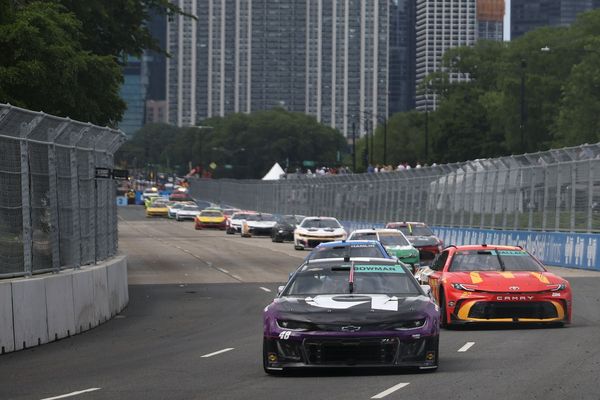
He was a statesman, not a politician. This is a common refrain about Sardar Partap Singh Kairon, the iconic chief minister of undivided Punjab, who opposed its division tooth and nail until his assassination in 1965. To him goes the credit of rehabilitating three million refugees of Partition in less than 10 years and laying the foundation of a robust Punjab with the modern city of Chandigarh as its capital.
Fifty-one years on, his family name is almost forgotten but for grandson Adaish Partap Kairon, better known as chief minister Parkash Singh Badal’s son-in-law.
MS Gill, a former chief election commissioner of India who worked under Kairon, however, insists that his legacy lives on. “All Punjab chief ministers after him are living off his legacy. He’s the benchmark for other CMs in India,” Gill says.
STATESMAN, NOT POLITICIAN
Kairon set up Punjab for prosperity by preparing the ground for the Green Revolution and industry. He invited industrialists such as the Oswals and Jaijees to invest in the state. He boosted higher education with Punjab Agricultural University, Kurukshetra University and Post Graduate Institute of Medical Education and Research. He rehabilitated refugees through training and direction. He consolidated landholdings in undivided Punjab by pooling fragments of land into economically viable chunks — the only Indian state to do so — thus preparing farms for mechanisation.

“Above all, he contained communal forces, opposing both the Punjabi suba and the language movement,” says M Rajiv Lochan of the history department, Panjab University.
His son, Gurinder Kairon, 82, claims there wouldn’t have been militancy, the Sutlej Yamuna Link canal issue, or this fuss about Chandigarh, had he lived on.
Dr Jagroop Sekhon of the political science department at Guru Nanak Dev University says Kairon disliked parochial politics of the Akali Dal. He believed the more you shrink Punjab, the more you will curb the aspirations of its people. A year after his assassination on February 6, 1965, Punjab was trifurcated.
UNDONE BY SONS?

A villager by conviction, an American by education, and a Lenin fan, Kairon did masters in economics and political science from Berkeley and University of Michigan in the US, where he lived for nine years. Kairon didn’t believe in political dynasties. Family sources tell how he would berate his sons Surinder and Gurinder when he was dogged by corruption charges during his second term. With Prime Minister Jawaharlal Nehru at the Centre, Kairon weathered three probes all of which absolved him. A month after Nehru’s death in May 1964, he resigned after being charge-sheeted by the Das Commission. It’s a measure of the high standards in public life those days that one of the charges Kairon, a severe diabetic, faced was of taking along a government doctor while travelling, now a legitimate perk of power.
Kairon was assassinated on his way back to Amritsar from Delhi after being offered the post of defence minister.
Gurinder says it was a political murder. He claims the two brothers were harassed politically because they had accused two national Congress leaders of being behind the killing. The brothers sought an appointment with then Prime Minister Lal Bahadur Shastri but never got it.
Later, Indira Gandhi gave a ticket to their mother, Ram Kaur, who won the ancestral seat of Patti in 1967. Feeling rebuffed by the Congress, the brothers joined the Akali Dal only to rejoin the Congress in 1972. They never occupied any ministerial post though Surinder won the Tarn Taran parliamentary seat in 1991.
Gurinder rues that Punjab politics changed after Kairon. Tracing the family legacy to his grandfather, Nihal Singh, an educationist who set up a girls school in Patti before Independence, he says their legacy has not shrunk. “We continue to pursue higher education, we continue to follow his principles, we continue to work hard,” says Gurinder.
Today the name Kairon is heard in the Punjab Assembly only because of Adaish Partap. “He’s been winning from Patti because my late brother Surinder supported him despite being in the Congress,” says Gurinder. His son, Har Partap Singh Kairon, says his cousin Adaish joined the Akalis reluctantly only because he was denied the ticket from Patti by then Congress chief minister Rajinder Kaur Bhattal in 1997. This family bastion seems to be in trouble as Adaish Partap won the 2012 polls by a wafer-thin margin.
Observers say Kairon’s two sons lacked his charisma and connect with the masses. But Gurinder, who pooh-poohs dynastic politics, argues that it’s times that have changed. “The Kairon legacy hasn’t shrunk,” he says. “It’s Punjab which has shrunk; its politics has shrunk, its ideology has shrunk, its objectives have shrunk.”
As Sekhon puts it: “Today’s politicians talk about the next elections. Kairon used to talk about the next generation.”
NEXT EDITION WILL BE ON BEANT SINGH FAMILY.







